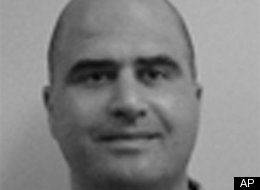Contessa_Sharra
Searcher for Accuracy
- Apr 27, 2008
- 1,639
- 149
- 48
Was Fort Hood Shooter Taking Army-Administered Medication?

First Posted: 11- 6-09 01:58 PM | Updated: 11- 6-09 05:00 PM

At a time when no official details have been released about the possible motives of the Fort Hood shooter, Nidal Malik Hasan, some are speculating that the Army Major might have been taking a drug with documented psychotic effects.
In a December 2002 article for Vanity Fair, Maureen Orth wrote about the deadly summer of 2002 at Fort Bragg, when three soldiers stationed at the North Carolina base murdered their wives. Back then, many people blamed an Army-administered anti-malarial drug mefloquine, also known as Lariam, which is often given to soldiers headed to Afghanistan. Orth pointed out that the drug's manufacturer, Hoffmann-La Roche, was forced to put labels that warned the drug "May cause psychiatric symptoms in a number of patients ranging from anxiety, paranoia and depression to hallucinations and psychotic behavior" as well as rare cases of suicide, "though no relationship to drug administration has been confirmed."
In light of Thursday's shooting rampage, Vanity Fair's Michael Hogan writes:
In a December 2002 article for Vanity Fair, Maureen Orth wrote about the deadly summer of 2002 at Fort Bragg, when three soldiers stationed at the North Carolina base murdered their wives. Back then, many people blamed an Army-administered anti-malarial drug mefloquine, also known as Lariam, which is often given to soldiers headed to Afghanistan. Orth pointed out that the drug's manufacturer, Hoffmann-La Roche, was forced to put labels that warned the drug "May cause psychiatric symptoms in a number of patients ranging from anxiety, paranoia and depression to hallucinations and psychotic behavior" as well as rare cases of suicide, "though no relationship to drug administration has been confirmed."
In light of Thursday's shooting rampage, Vanity Fair's Michael Hogan writes:
Given that Major Hasan was reportedly set to deploy to Afghanistan or Iraq, it would be useful to know whether he had begun anti-malarial treatments, and whether there's any possibility that those treatments could have helped trigger his horrific act of mass homicide.
According to Orth, "the World Health Organization claims that only one in from 6,000 to 10,000 people is adversely affected by the drug." However, a number of former Peace Corps volunteers claim that they suffered psychiatric effects from taking Lariam, "and Canadian troops refer to the 'Psycho Tuesdays' and 'Nightmare Wednesdays' they have had after using it," writes Orth.